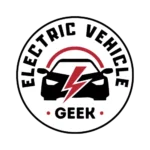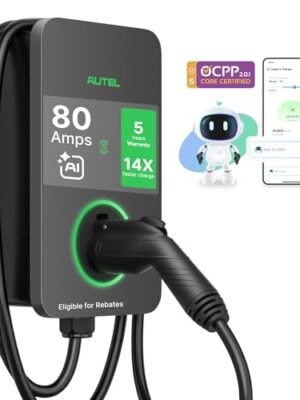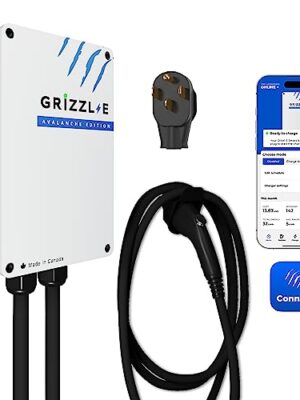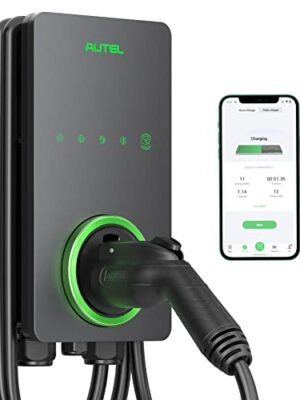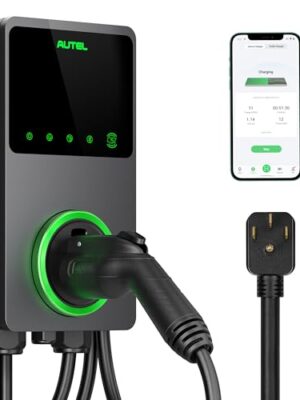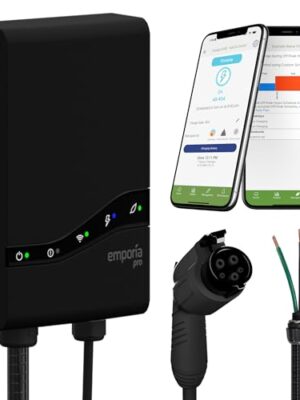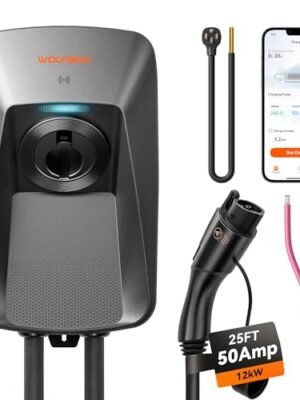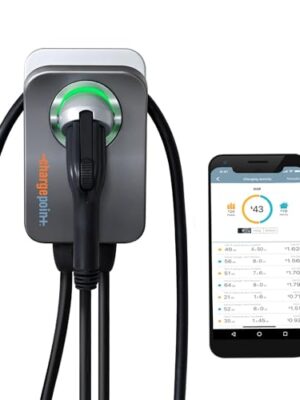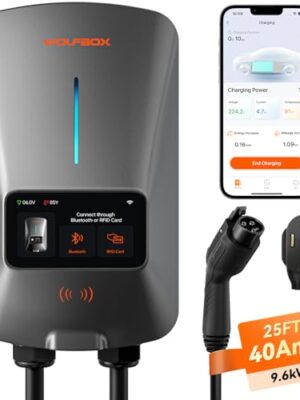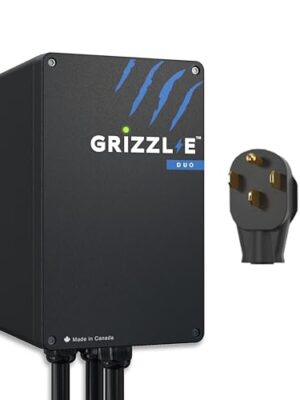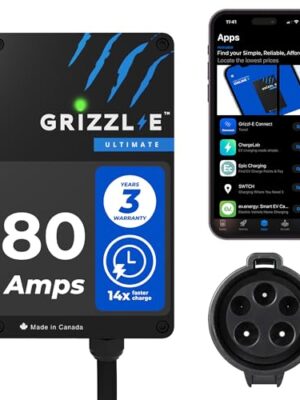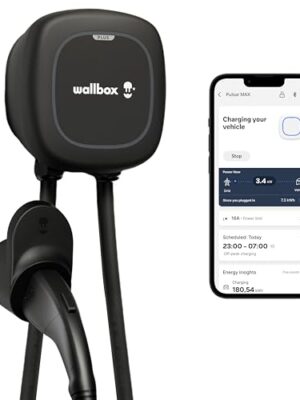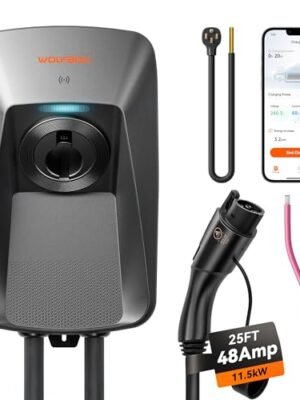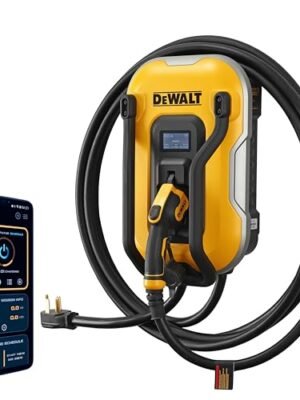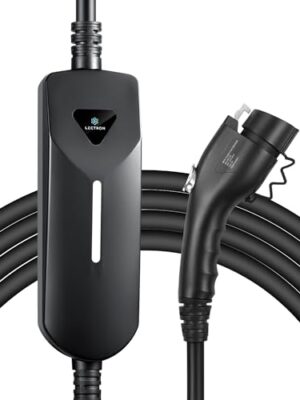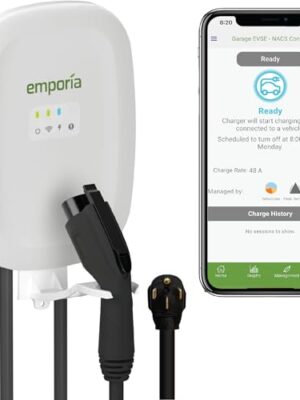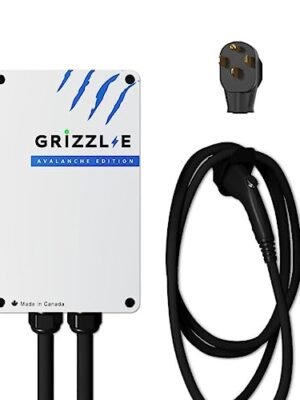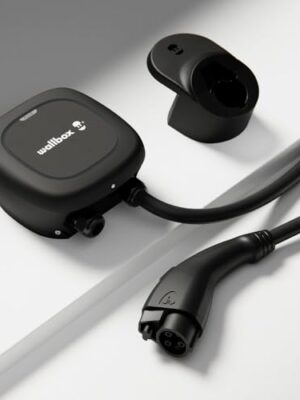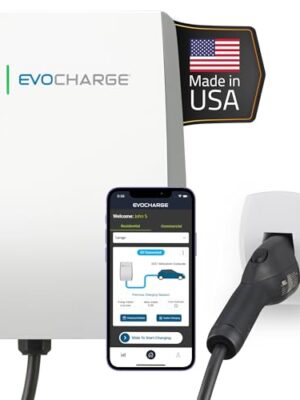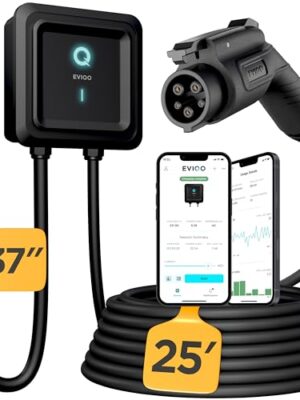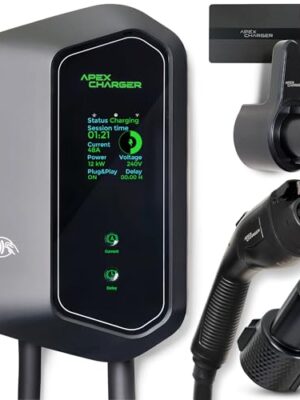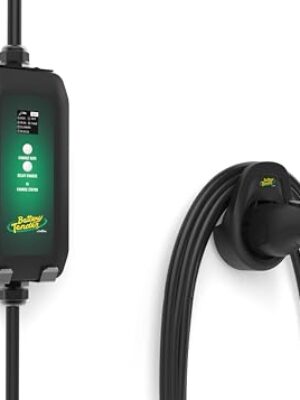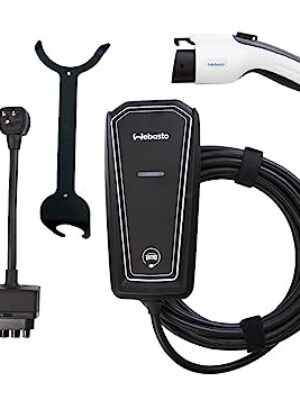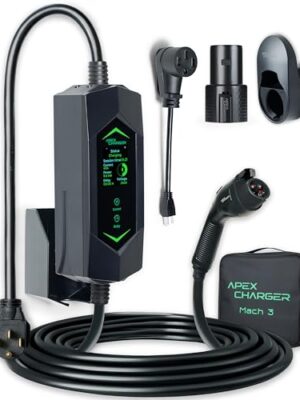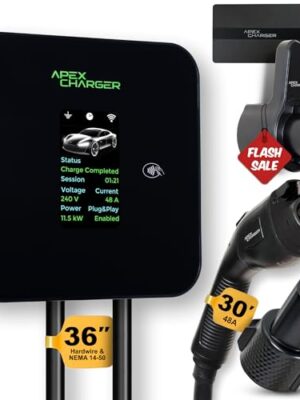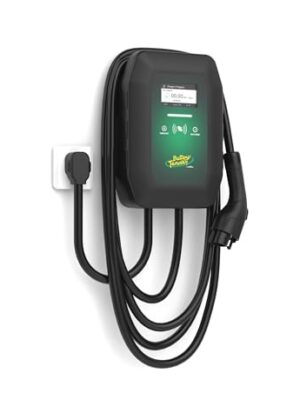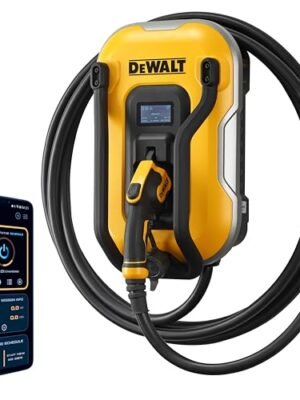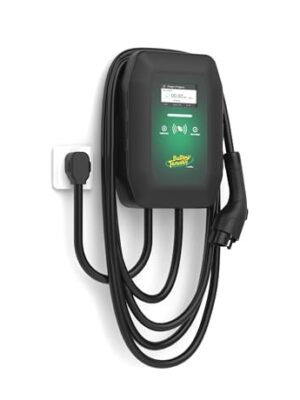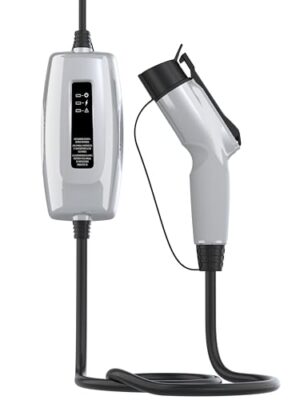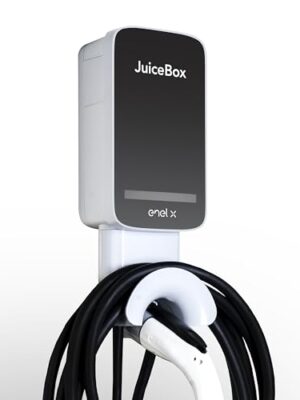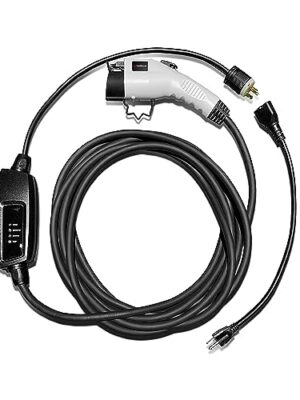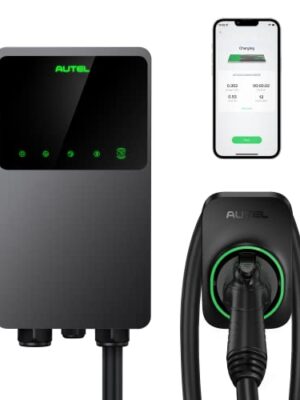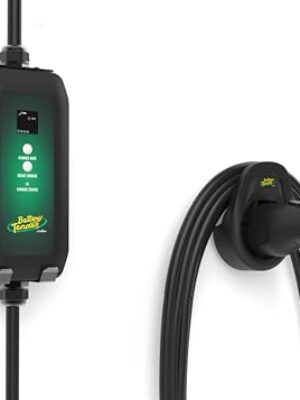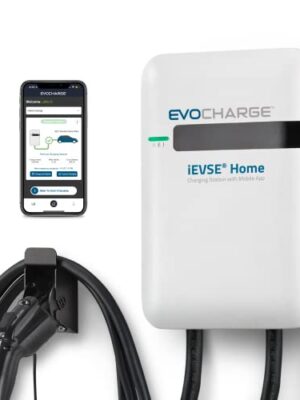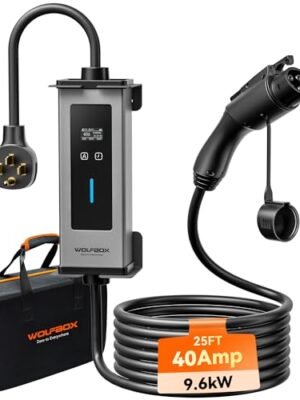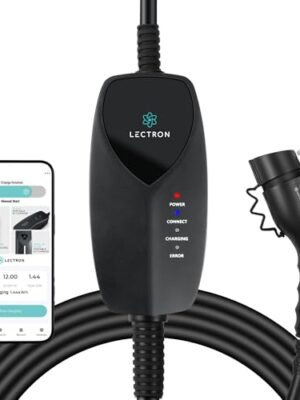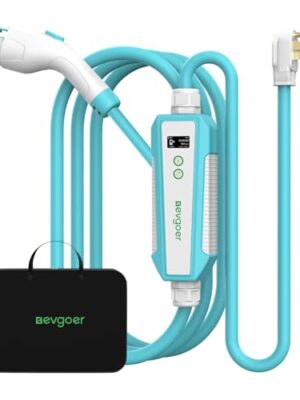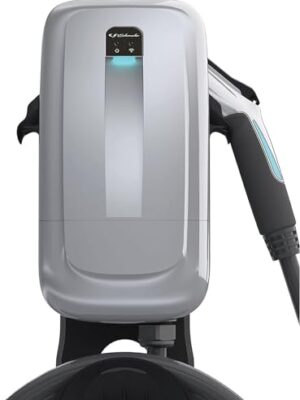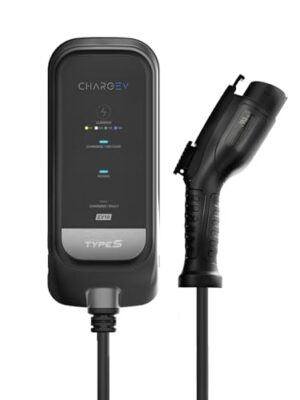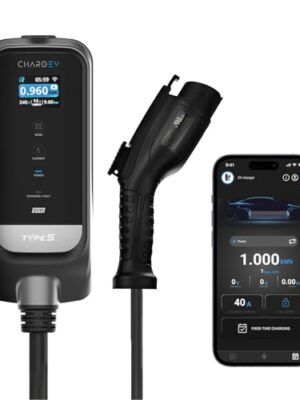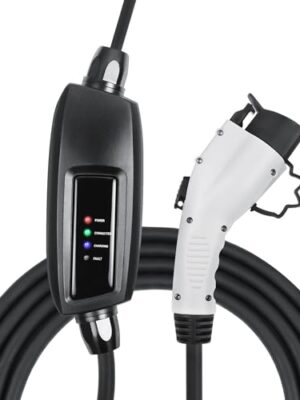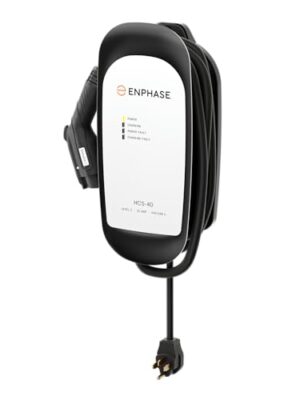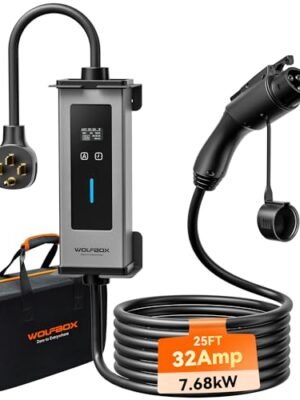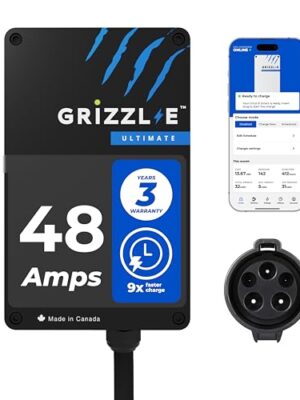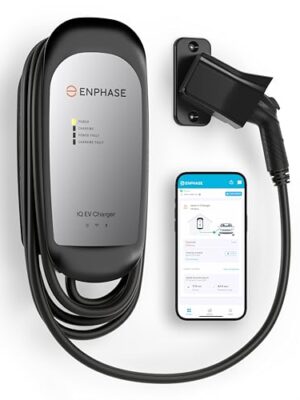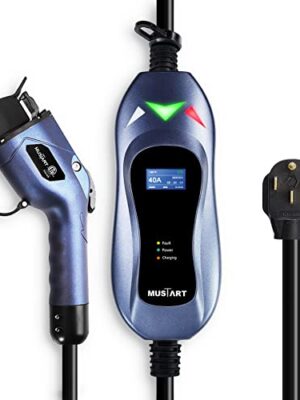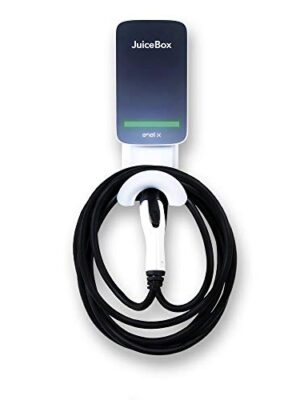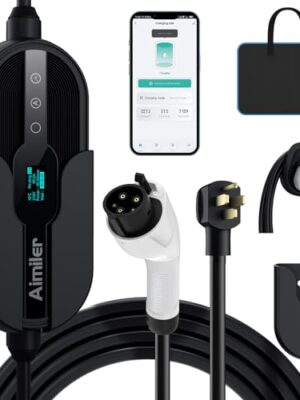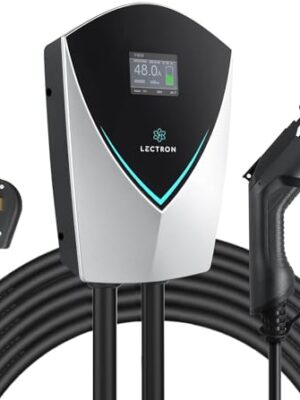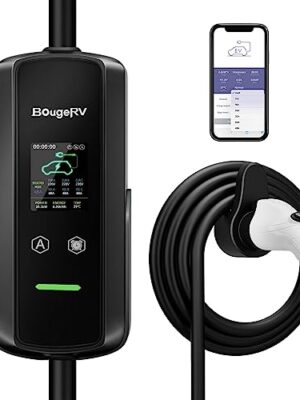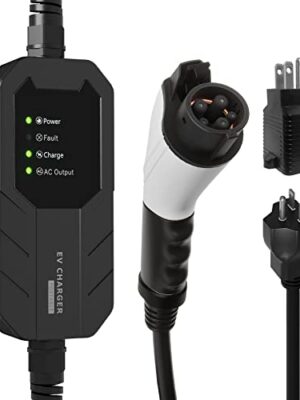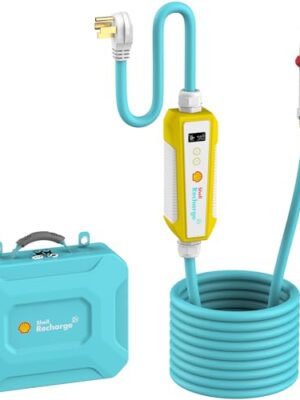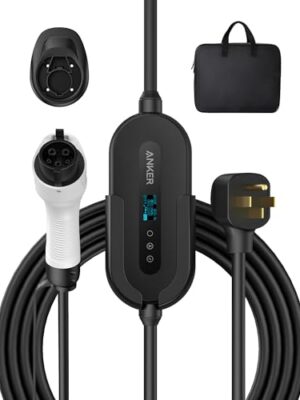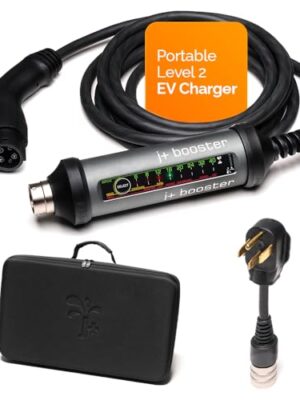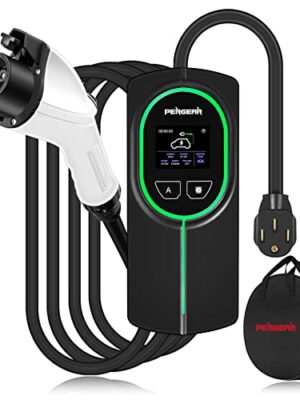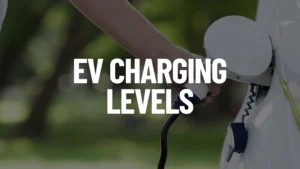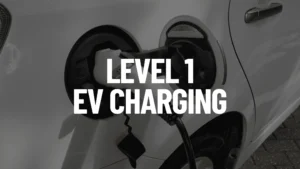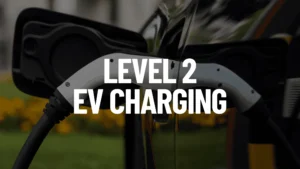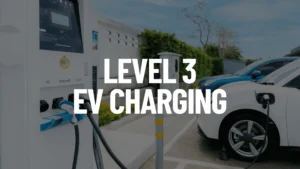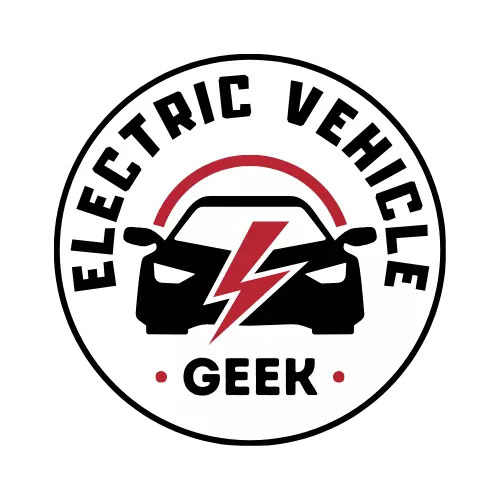Supported by you via insider access, and when you purchase through links on our site, we may earn an affiliate commission. See our Affiliate Disclosure.
Best Audi e-tron Charger for Home Charging
-
 Best Picks By
James Ndungu
Best Picks By
James Ndungu
- last updated September 23, 2025
Our expert-tested Audi e-tron home EV charger reviews are ranked by editor rating to help you select the most reliable home charging solution. Each recommended charger features a J1772 connector and is fully compatible with the Audi e-tron AC charging port, seamlessly working with the vehicle’s J1772 signaling system for AC home charging, ensuring optimal performance with Audi’s onboard charging system.
Editor Tip: Use our EV charger filter to list chargers by kW rating and find the fastest home charger for your Audi e-tron, matched to your vehicle’s maximum onboard charging capacity. For the 2025 Audi Q4 e-tron, Q6 e-tron, and e-tron GT, an 11.5 kW charger is the ideal choice, while higher-capacity models like the 2025 Audi Q8 e-tron and SQ8 e-tron can take full advantage of a 19.2 kW charger.
Use the “Compare” button on each product to select multiple chargers, then click the ⚖️ scale icon to see a full side-by-side comparison.
When choosing an Audi e-tron charger, check your car’s specifications, such as charging inlet, battery size, and onboard charger, along with the charger’s specs. These affect charging speed, compatibility, and installation. Our Audi e-tron charger reviews include a custom EV charger filter and an EV charger comparison tool, letting you sort and compare EV chargers by brand, charging level, power (kW), voltage, amperage, cable length, safety certifications, and smart features to make your search easier.
Not sure of your Audi e-tron charging specifications? See our expert-picked Audi e-tron charger recommendations by model, with Level 1, 2, and 3 specs including connectors, battery, and onboard charger capacity, range, and max charging speed.
2025 Audi e-tron EV Charging Options
Audi’s 2025 e-tron family includes the Audi Q4, Q6, e-tron GT, Q8, and SQ8 e-tron. Each model has a different battery size, charging speed at home, and fast-charging power for the road.
Audi Charging speeds change depending on the battery size and the onboard charger’s limits.
Below, we explain the charging options, driving range, and performance details to help you choose the right Audi EV.
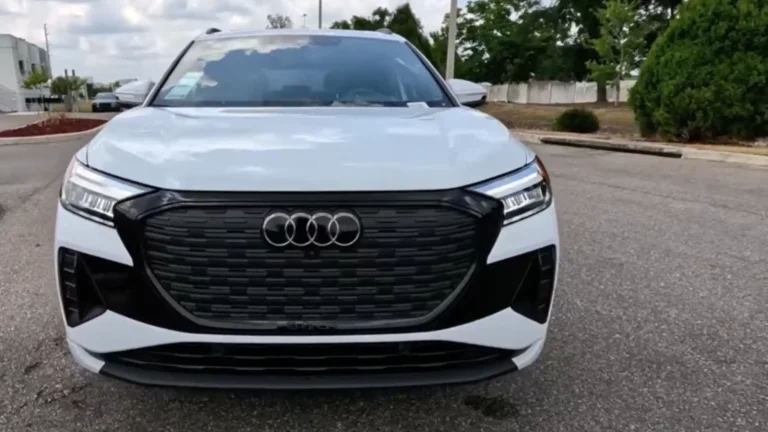
The 2025 Audi Q4 e-tron is equipped with a 77 kWh (net) battery and features an 11.5 kW onboard AC charger. It can also charge at public stations with up to 175 kW of DC power. The driving range is about 300 to 339 miles (482 to 546 km), depending on the trim.
At home, using a J1772 EV charger on Level 1 (120V, 12A from a 15-amp outlet) adds about 3–4 miles of range per hour, or up to 5 miles per hour on a 20-amp circuit (16A). With a J1772 charger on Level 2 (240V, 48A, 11.5 kW), you can add about 34 miles of range per hour, filling the battery in around 7 hours. On the road, the Q4 e-tron uses CCS Combo 2 in Europe or CCS1 in North America, charging from 10% to 80% in about 28 minutes.
2025 Audi Q6 e-tron Charging Options
The 2025 Audi Q6 e-tron is built with a 94.4 kWh (net) battery and a 9.6 kW onboard AC charger. It supports DC charging up to 260 kW thanks to its 800-volt system. The SUV has a WLTP-rated range of 290 to 392 miles (467 to 631 km).
At home, a J1772 EV charger on Level 1 (120V, 12A) provides 3–4 miles of range per hour, or up to 5 miles per hour on a 20-amp circuit (16A). A J1772 charger on Level 2 (240V, 40A, 9.6 kW) adds about 28–31 miles per hour, reaching a full charge in around 10 hours. For public charging, it connects through CCS Combo 2 in Europe and CCS1 in North America. With up to 260 kW DC power, the Q6 e-tron can go from 10% to 80% in about 21 minutes.
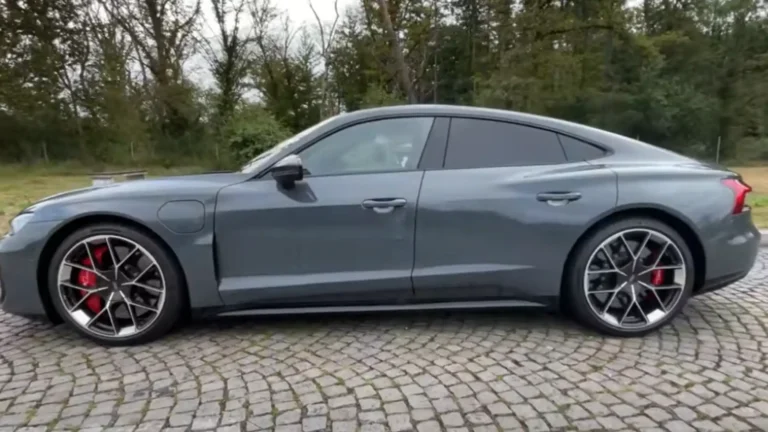
The 2025 Audi e-tron GT features a 97 kWh (net, 105 kWh gross) battery with a standard 11 kW AC onboard charger, with a 22 kW option available in select regions.
While the OEM 9.6 kW charger works, we recommend upgrading to an 11.5 kW EV charger for faster, more efficient home charging. Most e-tron GT models have a maximum AC acceptance rate of 11 kW, making the 11.5 kW charger safe and reliable. The extra 0.5 kW does not increase charging speed but ensures full compatibility and future-proofs your home setup.
At home, a J1772 Level 1 charger (120 V, 12 A) adds 3–4 miles of range per hour on a 15-amp outlet or up to 5 miles per hour on a 20-amp circuit. Level 2 charging (240 V, 40 A, 11 kW) adds roughly 32 miles per hour, fully charging the battery in about 8.5–9 hours. With the 22 kW option where supported, charging time drops to around 5 hours.
Choosing an 11.5 kW EV charger allows the e-tron GT to reach its full 11 kW onboard rate, offering faster home charging than a 10 kW charger, the next most popular option according to our popular EV charger kW research.
In high-amperage public EV charging, the e-tron GT leads Audi’s lineup in DC fast charging with CCS1 (North America) or CCS2 (Europe) connectors, supporting up to 320 kW. This enables charging from 10–80% in about 18 minutes and adds roughly 150 miles of range in just 10 minutes, making it one of the fastest-charging Audi models available.
2025 Audi Q8 e-tron Charging Options
The 2025 Audi Q8 e-tron features a 106 kWh (net) battery and supports AC charging up to 19.2 kW and DC charging up to 170 kW. The SUV can travel up to 373 miles (600 km) on a full charge, making it Audi’s most versatile long-range SUV.
At home, a J1772 EV charger on Level 1 (120V, 12A) adds 3–4 miles per hour on a 15-amp outlet, or up to 5 miles per hour on a 20-amp circuit. A J1772 charger on Level 2 (240V, 80A, 19.2 kW) delivers about 56 miles per hour, charging the battery in around 6 hours. For public charging, the Q8 e-tron uses CCS Combo 2 in Europe or CCS1 in North America, charging from 10% to 80% in about 31 minutes.
2025 Audi SQ8 e-tron Charging Options
The 2025 Audi SQ8 e-tron also has a 106 kWh (net) battery, with AC charging up to 19.2 kW and DC charging up to 170 kW. Because it’s tuned for performance, its range is lower than the Q8 e-tron, at around 307 to 330 miles (494 to 531 km).
At home, a J1772 EV charger on Level 1 (120V, 12A) gives 3–4 miles per hour on a 15-amp outlet, or up to 5 miles per hour on a 20-amp circuit. With a J1772 charger on Level 2 (240V, 80A, 19.2 kW), you can add about 56 miles per hour, filling the battery in about 6 hours. On the road, the SQ8 e-tron uses CCS Combo 2 in Europe or CCS1 in North America, reaching 10% to 80% in about 31 minutes.
Audi e-tron Charging Options: Level 1, Level 2, and DC Fast Charging
North America: J1772 connector, 120V, adds 3–5 miles/hour; full charge 3+ days. Europe: Type 2 plug, 230V, slow overnight charging option.
North America: J1772, 208–240V, 7–19.2 kW; charges e-tron in 4–10 hrs. Europe: Type 2, 3.7–22 kW; ideal for home and workplace AC charging.
North America: CCS1, up to 170 kW, 10–80% in under 1 hr. Europe: CCS2, up to 320 kW, rapid charging at highways and commercial stations.

James Ndungu is a certified EV charger installer with over five years of experience in EVSE selection, permitting, and installation. He holds advanced credentials, including certification from the Electric Vehicle Infrastructure Training Program (EVITP) and specialized training in EV charging equipment and installation, as well as diplomas in EV Technology and Engineering Fundamentals of EVs. Since 2021, James has tested dozens of EV chargers and accessories, sharing expert insights into the latest EV charging technologies.
Best Charger for Your Audi e-tron
Get expert Audi e-tron charger recommendations tailored to your model, battery size, onboard charger, driving habits, and home setup. Find the fastest, safest charger for your e-tron with ease.Why Trust Our Audi-etron EV Charger Reviews
Rigorous Testing
We’ve tested 350+ chargers and accessories, gathering 1,000+ real-world data points to give you the clearest picture.
We’ve tested 50+ brands, recommending only those with proven reliability and strict certifications.
Expert Team
Reviews are written by certified EV charger installers and licensed electricians who own and use electric vehicles.
Built on Integrity
All reviews are always independent, unbiased, and fully data-driven to provide trustworthy guidance.
